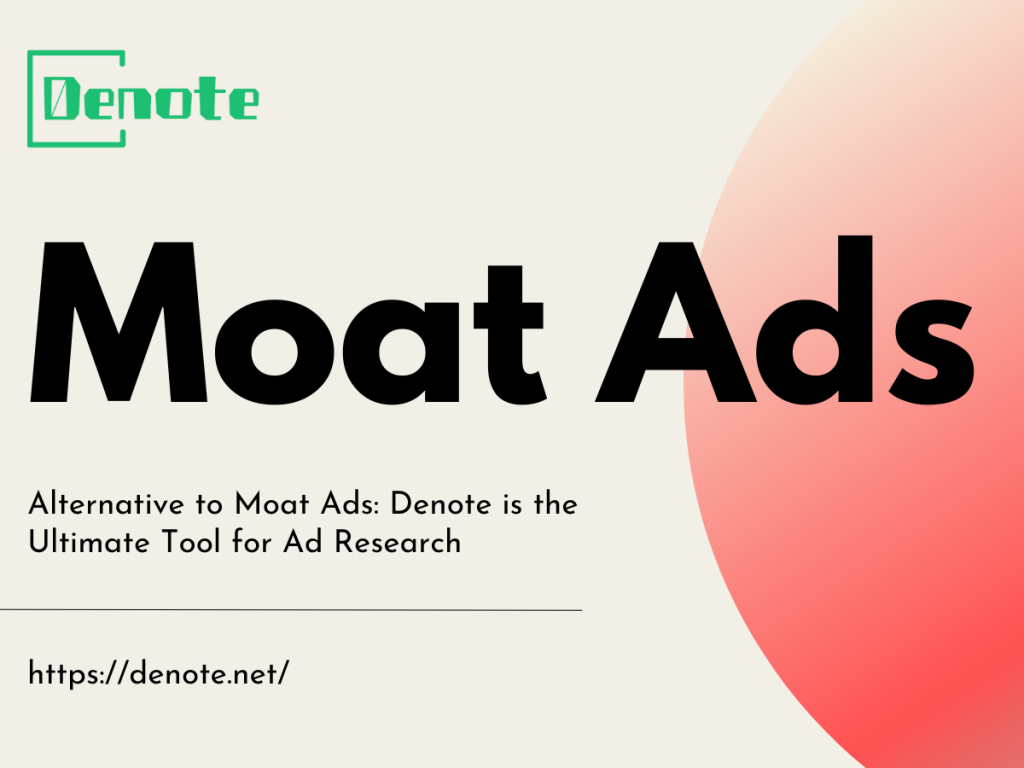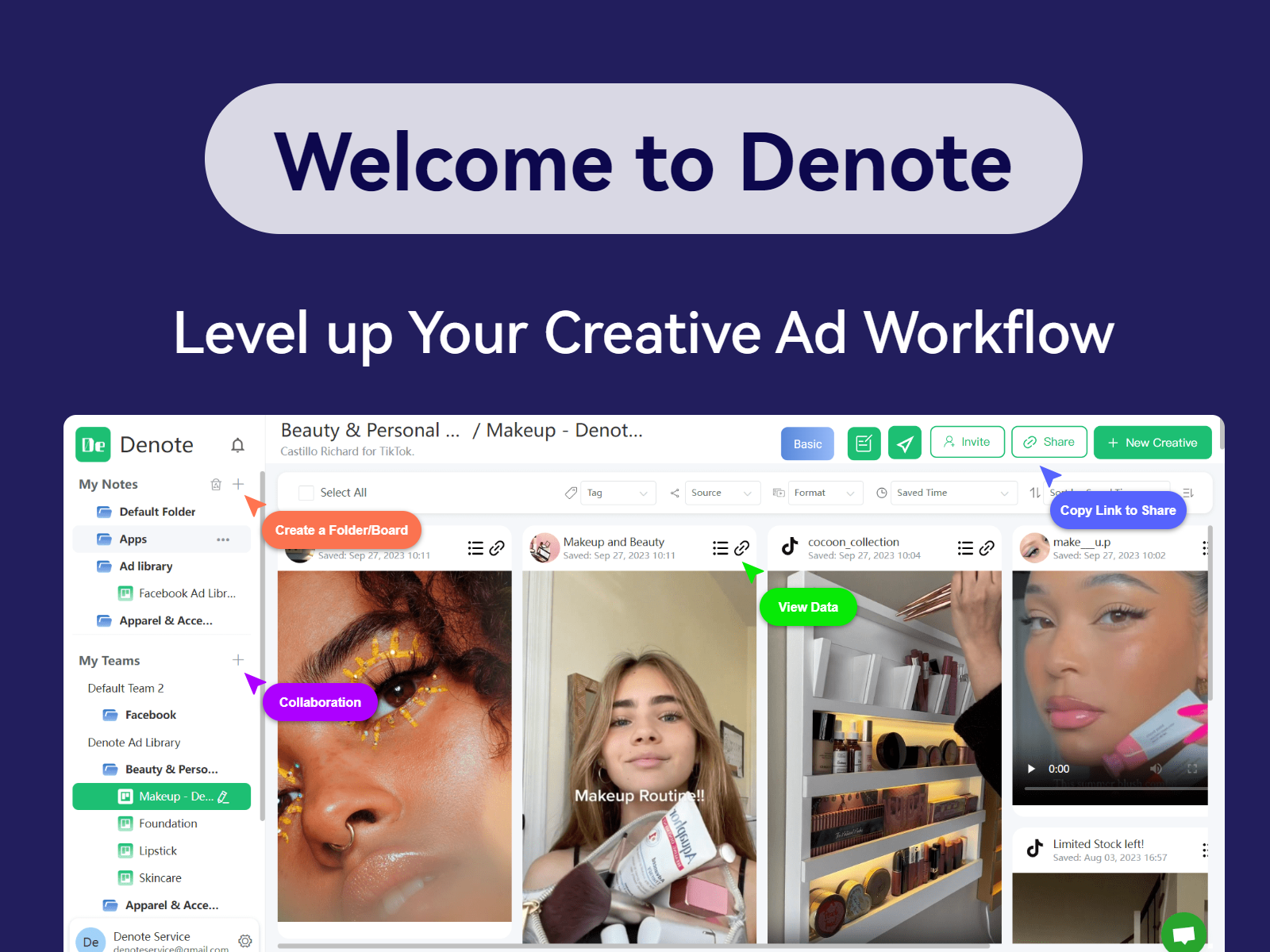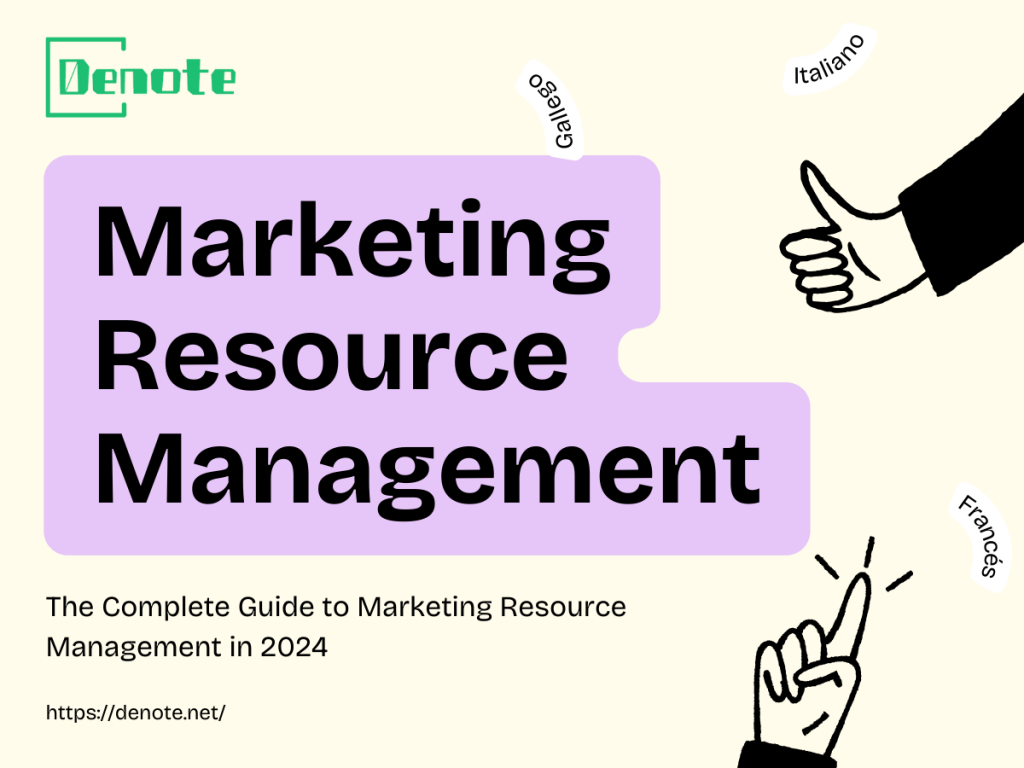Discover the closure of Moat Ad Search
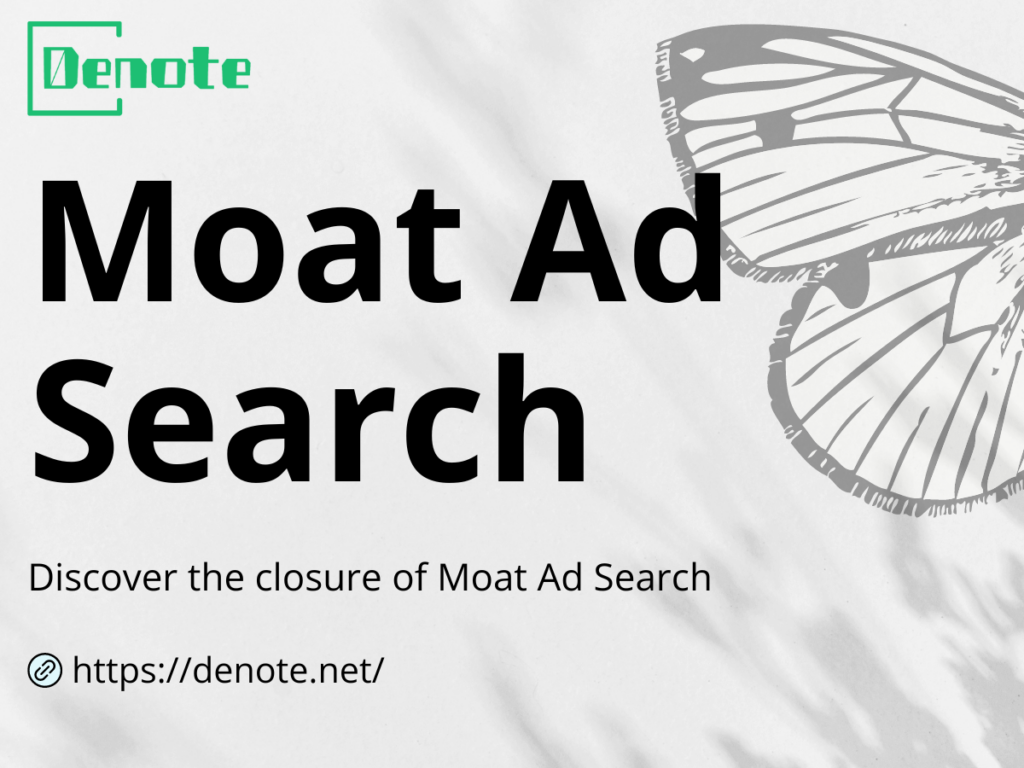
Introduction: Understand Moat Ad Search
Moat Ad Search, a product of Oracle Data Cloud, has been a key player in the digital advertising industry. It provided advertisers, publishers, and marketers with comprehensive analytics and insights into their digital ad campaigns. Users could search by brand name to see the ads currently running, including their sizes and the duration of each ad. Moat Ad Search quickly became a trusted tool for measuring the effectiveness of online ads. Its advanced features allowed users to delve deep into the performance of their campaigns, providing insights into how ads were consumed and interacted with across different platforms, making it a favorite among its users.
With the closure of Moat Ad Search, the digital advertising landscape faces significant changes. Advertisers and publishers must now seek alternative solutions to fill the gap left by this influential tool. The impact of this closure is multifaceted, affecting various stakeholders in the industry. The following sections will analyze the reasons behind the closure of Moat Ad Search, its immediate and long-term effects, and how the industry is adapting to this change.
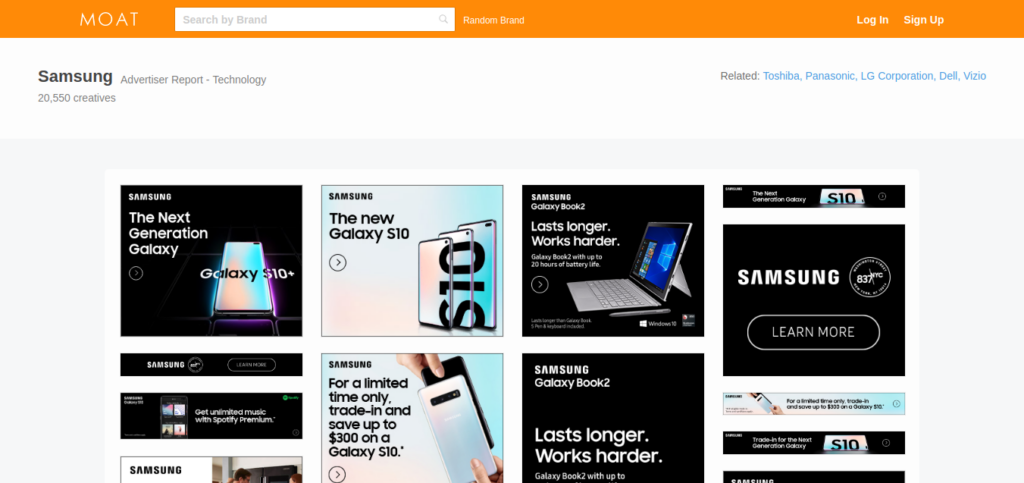
Reasons Behind the Moat Ad Search
The closure of Moat Ad Search has left many in the advertising world scratching their heads. While the exact reasons behind Oracle's decision remain shrouded in corporate strategy, several key factors likely played a role.
Financial Performance and Cost Management
One of the most apparent reasons could be financial performance. Despite its value to advertisers, maintaining and continuously updating a sophisticated tool like Moat Ad Search is expensive. Oracle may have determined that the costs outweighed the benefits, especially if the product wasn't generating sufficient revenue or profit margins.
Strategic Shift in Business Focus
Another crucial factor could be a strategic shift within Oracle. Companies often reassess their portfolios and decide to focus on core areas that align more closely with their long-term goals. Oracle might be redirecting its resources to other segments of its business that promise higher growth or better alignment with its overall strategy.
Market Competition and Alternatives
The competitive landscape in digital advertising is fierce. With numerous other tools and platforms offering similar capabilities, Oracle might have faced stiff competition, making it harder for Moat Ad Search to stand out and attract new customers. The presence of strong competitors could have influenced Oracle's decision to exit this particular market.
Regulatory and Privacy Concerns
In recent years, there has been increasing scrutiny and regulation around data privacy and digital advertising practices. Complying with these regulations can be challenging and costly. Oracle might have decided that the regulatory environment made it too difficult or costly to continue operating Moat Ad Search effectively.
The Impact After the Closure of Moat Ad Search
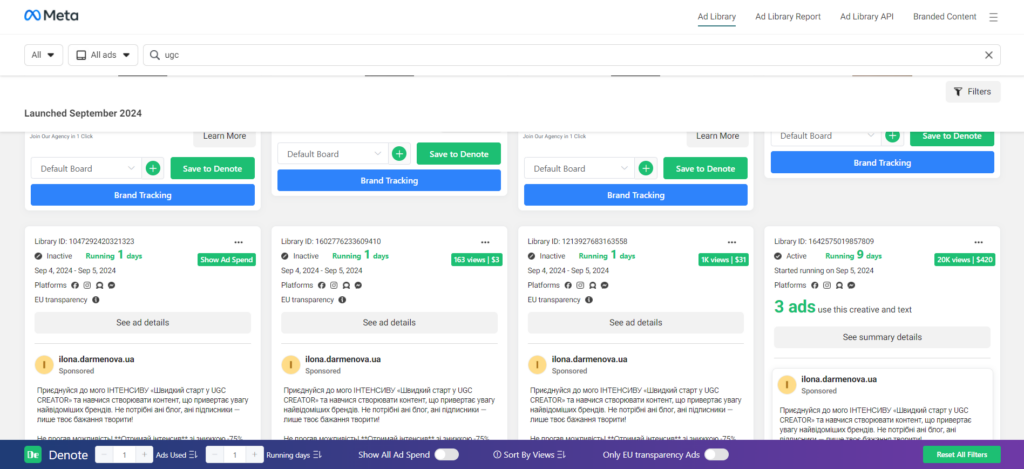
Impact on Digital Marketing Strategies
The closure of Moat Ad Search has forced advertisers to rethink their digital marketing strategies. Many relied on Moat's robust analytics to measure the effectiveness of their campaigns. Without it, businesses need to find alternative tools that can provide similar insights. This transition period might lead to temporary disruptions as companies adjust to new platforms and methodologies. Marketers will need to stay agile and be ready to experiment with different solutions to maintain the quality and efficiency of their campaigns.
Effects on User Experience
For users, the closure of Moat Ad Search means potential changes in how ads are targeted and displayed. Moat was known for ensuring that ads were viewable and aligned with brand safety standards. Without its oversight, there might be an initial dip in ad quality and relevance. However, as advertisers and publishers adapt to new tools, the user experience is expected to stabilize. The goal remains to serve ads that are engaging, non-intrusive, and relevant to the audience.
Immediate Effects on Advertisers
Advertisers have felt the immediate impact of Moat Ad Search's closure. Many had to scramble to find replacements to ensure their campaigns continued running smoothly. This urgency has led to a surge in demand for other ad analytics tools. Companies like Peer39 and GumGum have reported increased interest from advertisers seeking continuity. The abrupt need to switch tools may have caused some short-term chaos, but it also opened opportunities for other players in the market to step in and fill the void.
Changes in Competitor Landscape
The digital advertising landscape has seen a noticeable shift with Moat Ad Search's exit. Competitors are now racing to capture the market share left behind. This has led to increased innovation and enhancements in existing tools as companies strive to offer the best alternatives. The market is seeing a diversification of solutions, giving advertisers more options to choose from. This competitive environment could ultimately benefit the industry by driving improvements and fostering innovation.
Denote: Moat Ad Search alternative
In this blog post(Alternative to Moat Ads: Denote is the Ultimate Tool for Ad Research), we detail several alternatives to Moat Ad Search, among which Denote undeniably stands out as the best replacement. Denote is the premier tool for ad spy, ad management, and ad creation. Currently, Denote ad library boasts over two million ads. Additionally, Denote offers competitor ad tracking and analysis features, providing you with the most comprehensive analysis reports at any time. Denote AI capabilities are also incredibly powerful, allowing you to transcribe video scripts, analyze and regenerate ad creatives, saving you a significant amount of time.
For more information about Moat Ad Search alternative tool, please check out this blog post:
Regardless, Denote is definitely your best Moat Ad Search alternative option.
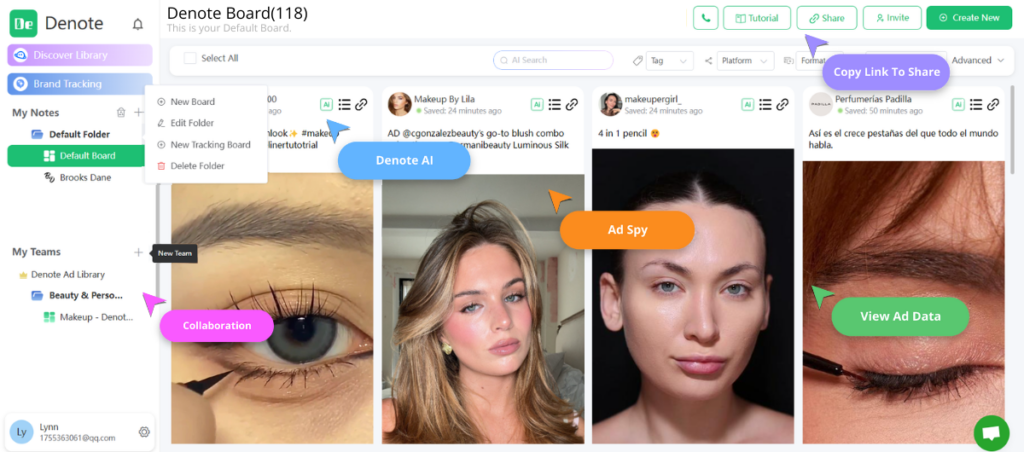
Expert Opinions of Moat Ad Search
Advertisers who used Moat Ad Search have expressed their concerns about its discontinuation. Many found it to be an invaluable tool for monitoring their ad performance and ensuring their campaigns were effective. The feedback from advertisers indicates a significant reliance on Moat Ad Search for real-time analytics and competitive insights. They appreciated its ability to provide actionable data that could be used to tweak and improve their strategies continually. The closure means advertisers will need to invest time and resources in finding and learning to use alternative tools.
Experts agree that the future of digital advertising will need to adapt rapidly to the absence of Moat Ad Search. There is a consensus that innovation in ad analytics will continue, and new tools will emerge to meet the evolving needs of advertisers. However, experts also caution that the transition period may be challenging. They advise advertisers to stay informed about new developments and be proactive in exploring and adopting new technologies that can help maintain the high standards set by Moat Ad Search.

